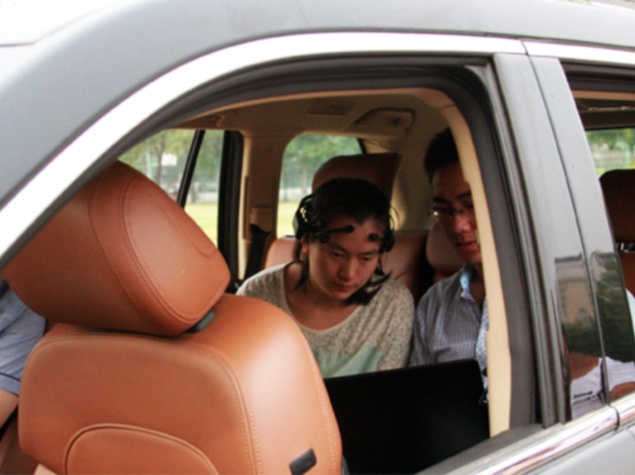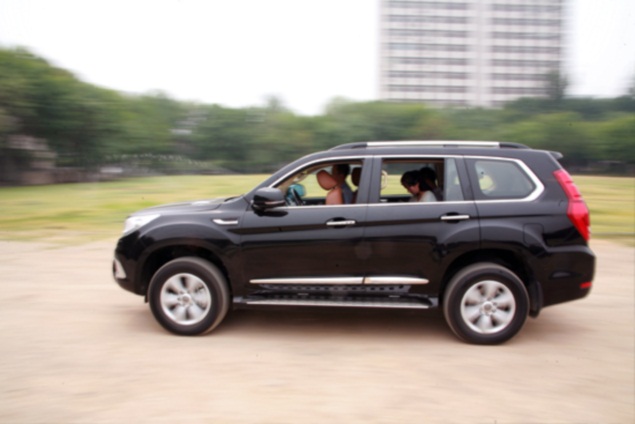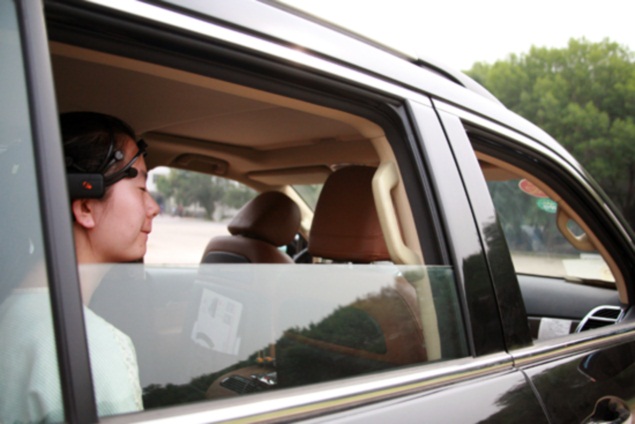
The car is controlled via a headset with 16 sensors that send impulses from the user’s brain to the car’s processing system.
Spectators watched as the vehicle moved forward and backward; and was locked and unlocked all with the help of the power of the mind.
 The sensors capture brain signals and the recognition system analyses them, translates them into driving instructions and sends them to the car’s processor.
The sensors capture brain signals and the recognition system analyses them, translates them into driving instructions and sends them to the car’s processor.
Duan Feng, associate professor at the university’s computing and control engineering department, said there was still some way to go before the technology can be put into production.
“The technology is quite mature. However, there is some room for improvement concerning the car’s electronics, which will make the vehicle more secure, intelligent, and user-friendly,” he said.
The technology could transform driving and help disabled people to drive, he added.
 Of course, while mind-controlled cars are something new, self-driving cars are the current trend, with almost every major car manufacturer working on the technology, and tech companies like Google also significantly investing in the field. Google and its self-driving car technology was most recently in the news for the firm’s first accident that caused an injury.
Of course, while mind-controlled cars are something new, self-driving cars are the current trend, with almost every major car manufacturer working on the technology, and tech companies like Google also significantly investing in the field. Google and its self-driving car technology was most recently in the news for the firm’s first accident that caused an injury.
[“source – gadgets.ndtv.com”]







